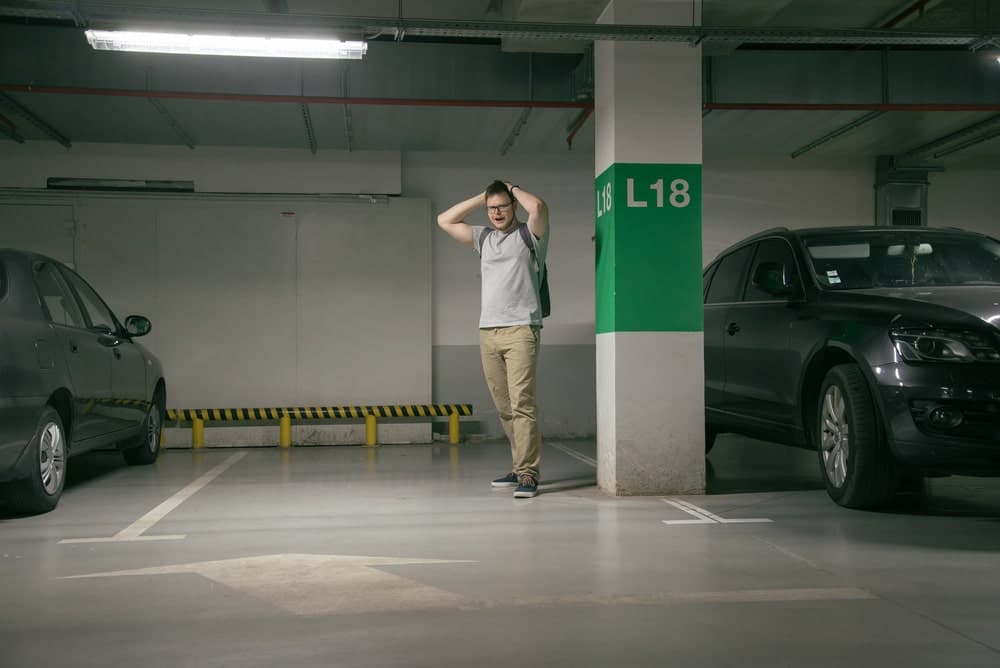Compare car insurance policies with Compare the Market
Savvy is partnered with Compare the Market to help you compare a range of car insurance policies from a panel of trusted providers.
Home > Car Insurance > What to Do if Your Car is Stolen
Find out the steps you should take if your vehicle is stolen right here in Savvy’s helpful guide.
Author
Savvy Editorial TeamFact checked

Discovering your car has been stolen can be a distressing and unnerving experience. No matter where you live, it's essential to know how to respond promptly and effectively if you find yourself in this situation. Savvy’s comprehensive guide walks you through the essential steps to take if your car is stolen, helping you navigate the process smoothly.
Stay calm and verify the theft
The initial shock of discovering your car is missing can be overwhelming, but it's crucial to stay calm. Take a moment to ensure you’re parked in the correct location or check with family members or friends if they have borrowed the vehicle.
Contact police
If you confirm that your car has indeed been stolen, immediately contact police and provide them with detailed information about your vehicle, including its make, model, colour, registration number and any distinctive features, and details surrounding the theft of your vehicle.
It’s also crucial to keep in mind that if your car was stolen from your property, you should avoid touching anything which may have also been touched by the thief. This may help police identify if any fingerprints are present at the scene.
Contact your insurance provider
Once you’ve reported the theft to the police, it's time to inform your car insurance provider. Most insurance companies require prompt notification of the incident, so contact them as soon as possible. Provide them with all relevant details, such as the police report number and the time and location of the theft. Your insurer will guide you through the claims process and inform you about the coverage you have for a stolen vehicle.
Keep an ear to the ground
Although the police will be undergoing their processes to hopefully locate your car, you can also contribute to the cause. Checking around on car-selling websites for vehicles matching the description of yours can be a great first step, while you may wish to put the call out on social media to see if anyone you know or who lives in your city might have an idea of where your car is.
Be patient and hopeful
The recovery process may take time, so it's essential to remain patient and hopeful. Continue cooperating with the authorities and your insurance provider as they work towards a resolution.
Remember, the best defence against car theft is prevention. Always lock your vehicle and avoid leaving valuables in plain sight. By staying vigilant and taking immediate action if your car is stolen, you can increase the likelihood of a successful recovery and protect your valuable asset on the roads.
In the event your car isn’t found, your insurer can provide you with a lump sum payout for the total loss of the vehicle (up to an amount specified in your policy). This will usually come after a certain period has passed, often a few weeks or a month.
However, if your car is found after you receive a payout from your insurer, the police will surrender the vehicle to your insurer, as they’re now essentially the owner of the car. From here, your insurer may be able to return the car to you in return for a reimbursement of your payout or retain the vehicle, such as if it’s in a condition deemed unrepairable.
Select your car make and find out how much it may cost to insure, read helpful guides and compare quotes.
Disclaimer:
Savvy (ABN 78 660 493 194, ACR 541 339) provides readers with a variety of car insurance policies to compare. Savvy earns a commission from our partnered insurers each time a customer buys a car insurance policy via our website. All purchases are conducted via our partners’ websites. The integrity of our comparison service is unaffected by our partnerships with those businesses and our effort remains to bring further brands that do not already use our comparison service onboard.
Savvy’s comparison service includes selected products from a panel of trusted insurers and does not compare all products in the market. Any advice presented above or on other pages is general in nature and doesn’t consider your personal or business objectives, needs or finances. It’s always important to consider whether advice is suitable for you before purchasing an insurance policy. We always recommend readers to consult the Product Disclosure Statement (PDS) of different policies before purchasing your car insurance.
Quantum Savvy Pty Ltd (ABN 78 660 493 194) trades as Savvy and operates as an Authorised Credit Representative 541339 of Australian Credit Licence 414426 (AFAS Group Pty Ltd, ABN 12 134 138 686). We are one of Australia’s leading financial comparison sites and have been helping Australians make savvy decisions when it comes to their money for over a decade.
We’re partnered with lenders, insurers and other financial institutions who compensate us for business initiated through our website. We earn a commission each time a customer chooses or buys a product advertised on our site, which you can find out more about here, as well as in our credit guide for asset finance. It’s also crucial to read the terms and conditions, Product Disclosure Statement (PDS) or credit guide of our partners before signing up for your chosen product. However, the compensation we receive doesn’t impact the content written and published on our website, as our writing team exercises full editorial independence.
For more information about us and how we conduct our business, you can read our privacy policy and terms of use.
© Copyright 2024 Quantum Savvy Pty Ltd T/as Savvy. All Rights Reserved.
Our consultant will get in touch with you shortly to discuss your finance options.
